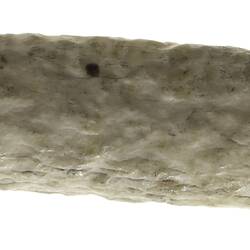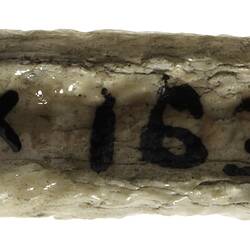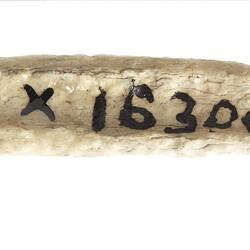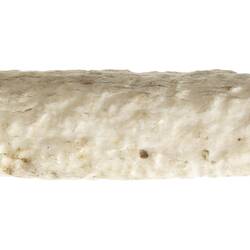Summary
Taking in the south-western corner of Victoria, which is nourished by Ancestral waterways and wetlands, the traditional country of the Gunditjmara people is in the Western District of Victoria.
Aboriginal women in Australia's south-east were renowned anglers, and they fished these waters using a simple yet ingenious technique that greatly contributed to the subsistence of their families.
Sometimes while in a canoe, women would take a piece of bone, or hardwood sharpened at each end, and attach it to a plant-fibre line using a hitch-knot. The bone point was baited, and when seized by a fish would become lodged in its jaws, securing the catch. It is possible that multiple gouges were attached to a line to catch more than one fish at a time.
It is possible that some of the longer double-pointed bones were multi-purpose, used as a dual spear point and barb, as well as a fish gouge. Bone fish gouges have been found in middens along the coasts of New South Wales and Victoria.
Physical Description
Fish Hook. Small, straight piece of bone, pointed at both ends.
Significance
The Gunditjmara continue to have a strong social, cultural, and land management presence as the recognised traditional owners of a large area of western Victoria. Aquaculture forms an integral part of their ancestral and contemporary identity and subsistence. The Gunditjmara people have continually fought for rights to their traditional country, winning landmark legal cases in both the 1980s and 2007.
In his speech at the native title consent determination in 2007, Gunditjmara Elder Ted Lovett highlighted the determination as a critical exercise in justice for his people;
'We have never been in any doubts as to the ownership of this beautiful place where our legends and stories were handed down by our Elders but today we will be told officially by the government that we are the native title holders. There are many people from this area who have died waiting for this day to come who wanted so much to hear these simple words 'this is your country', in recognition of who we are and where we come from. We know who these people are because they are our families. Today is a day of reckoning, of finally having what belongs to us. We Elders now have a legacy to leave to the coming generations of the Gunditjmara people in the future.'
Reference: http://aiatsis.gov.au/sites/default/files/docs/research-and-guides/native-title-research/GunditjmaraLandJusticeStory.pdf
More Information
-
Object/Medium
Hook
-
Maker
-
Locality
-
Date Produced
-
Date Collected
-
Object Measurements
65 mm (Length), 10 mm (Width), 10 mm (Height)
-
Classification
-
Date Made
-
Maker
-
Clan/Language Group
-
Place Made
-
Indigenous Region
-
Keywords
-
Collection Names
-
Type of item
-
Discipline
-
Category
-
Collecting Areas




